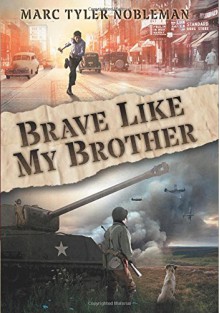
Othello is can be a very painful play both to read and to watch. It is not that it is a bad play, no, it is a brilliant play - the reason that I say Othello is painful is because it is one of those plays that makes you squirm and feel really uncomfortable because it is doing what literature is supposed to do: hold a mirror up to life. The first time I read it in university it was painful and I thought that it was because at university you tend to overanalyse pretty much everything. However I have come to understand that there was nothing necessarily wrong with what my lecturers said, and in fact in the edition that I read I noticed that there was a long discussion of misogyny as it exists in Western Literature (namely because, as I have indicated elsewhere, it is the woman who actually holds the power over the man because it is the woman who seems to be able to pick and chose, where as the man simply has to put up with whoever says yes to him).
Anyway, in the years since I studied this play in English One, the more I read it the more painful the play becomes. Take for instance the two bedroom scenes in the play. In the first bedroom scene we have Othello and Desdemona passionately making love (though this was clearer in the Lawrence Fishburne movie than in the play), however in the second bedroom scene we have Othello killing Desdemona in a fit of rage fuelled by jealousy. It is in this scene that we realise that Othello has reached the point of no return. It is probably the most heart wrenching scene in the play because we know that Desdemona is innocent and we know that Othello has been played for a fool, but we also know that once he has committed this act that is it, there is no going back. In both of these scenes we see the emotion that fuels Othello: in the first he is fuelled by passionate love; in the second he is fuelled by jealousy.
When I read the introduction to this play I came to understand why this play was chosen with the other plays that we had read in English One. It was chosen because of the idea of moving from the centre, being civilisation, to the fringe, being the border fortresses. While Jacobean England was only beginning its expansionist push, there was still the idea that England, the centre, was civilised, while the colonies, being the fringe, were lawless. This is mimicked in this play (as it is in numerous other plays) with Venice being the centre and Cyprus being the fringe. This also brings up the idea that the centre represents peace while the fringes represent war. Even though the Turks had already been defeated before the action of the play begins, there is still this idea of the fringe being in a perpetual state or war, and while it may not be a war with flesh and blood enemies, it is still a war, a war not so much of ideas but rather a war between civilisation and barbarity, or a struggle between the rule of law and the rule of the sword.
Now, I probably should spend some time discussing the character of Iago, namely because Iago is the most important character in the play. Iago is the quintessential villain. In a way he could be the villain that many other villains are based upon. He is not evil, nor is he ruled by his passions, but rather he displays a cold and calculating reason. He is a deceitful man who is in full control of his mental faculties. Yes, he is a villain, but he is not evil, and the reason I say this is because evil, technically, has no purpose other than to spread pain and misery for the sake of doing spreading pain and misery. Evil is not inflicting pain for the sake of pleasure, that is madness, nor is it waging war against somebody for the purpose of your own advantage, that is ambition. No, evil, in and of itself, is doing such things for the simple purpose of doing it.
So, if Iago is not evil, why does he hate Othello? Well, in the story that the play is based upon, it is because of his desire of Desdemona and his anger that she married the Moor. What adds insult to injury is the fact that Othello is not even European. This is not the case in the play, but rather bitterness for being passed over for promotion. I myself have experienced that by simply seeing somebody given a promotion instead of me, particularly when that person seems to be competing with me and gloats because of his promotion. This is not the case with Othello because we know and can see that he is a very honourable person. Further, it is clear that Iago is racist, not racist in the sense that he hates Othello because he has black skin, but that he hates Othello because he is not Venetian. He is given a commanding role, and then Othello adds insult to this by making Cassio his second. The race issue can be a distraction, as some have said, because viewing this play in the post civil-rights era makes us focus more upon the racism aspect as opposed to the idea that Iago simply wanted Othello's job.
One of the things that went through my head while reading this play was the question of what was Iago hoping to gain through his manipulation of Othello, and I suspect that it has something to do with the issue of Othello not being European. This has been something that has existed for a long time, and that is the idea that we as humans have treated race in the same way as we see animals. I say this in a sense that a dog will aways act like a dog and a cat will always act like a cat: it is in their nature. However, the reality is that race is like a breed, so by using a dog as an example, it does not matter whether one is a Pitbull, or a German Shepherd, or a Poodle, they are still dogs and they all behave like dogs. However, the idea was that Europeans were civilised, and the other races were not, and as such it appears that what Iago is trying to do (and I could be wrong) is to prove that it does not matter how long Othello has been around Venitians, he is still a Moor and he will behave like a Moor, and as such I suspect that what he is trying to do is to expose the belief that once a barbarian, always a barbarian.
However, the catch is that what is being exposed is the base human nature. It is a shame that Shakespeare uses the Moor because to many of the people watching the play, they would have accepted that it is not surprising that the Moor, overcome by jealousy, reveals his barbaric nature. That simply is not true because it does not matter what colour your skin is there is still that base human nature that exists within us, that part of us that fights against the civilising force. If that were not true, why is it that a bulk (if not all) serial killers are white?
I also wondered whether Iago was overwhelmed by hate, and in answer to that question I have to say no. Iago is not ruled by his passion or his emotion because it is clear that he is clever, calculating, and manipulative. These actions require a sound mind that is able to think and to reason. His jealousy is based on reason, and that reason is that underneath the civilised exterior, Othello is a barbarian, and to expose that he needs to have all of his wits about him. Notice that throughout the play Iago is always seen as 'honest Iago' and it is not until his wickedness is exposed that he is correctly identified as a villain.
Thus it seems that the main theme that runs through this play is the question of civilisation verses barbarity. The Moor is a barbarian, a warrior at heart, and on the battlefield he is unstoppable, which is why he has been promoted to the rank of general, but it is clear that he does not understand the political battlefield. He does not see Iago manipulating him, but rather trusts him, believing that he is a friend. It is not that Othello is at heart a barbarian, but rather that he is innocent. In the end, it is Iago who is the barbarian, the one who plays upon other people's innocence, and his refusal to accept that a non-European can be a decent and honest man. In the same way, during the 19th century, it was the Australian Aboriginals who were called the barbarians, however the real barbarians were the English colonists who stole their land and murdered their birthright.


 Log in with Facebook
Log in with Facebook 












